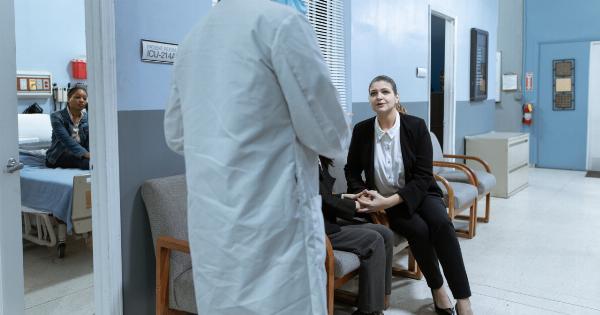Medical mistakes are unfortunately more common than most people realize. These errors can have devastating consequences for patients and their families, leading to serious injuries, disabilities, and even death.
Despite the advancements in medical technology and an increased emphasis on patient safety, medical mistakes continue to occur at an alarming rate. Here, we will uncover the shocking truth about medical mistakes and shed light on this pressing issue.
The Scope of the Problem
Medical mistakes encompass a wide range of errors that occur in various healthcare settings, including hospitals, clinics, nursing homes, and pharmacies.
These mistakes can occur at any stage of the healthcare process, from diagnosis to treatment and follow-up care. Some common types of medical mistakes include misdiagnosis, surgical errors, medication errors, anesthesia mistakes, and infections acquired in healthcare settings.
The Impact on Patients
The consequences of medical mistakes can be life-changing for patients and their loved ones.
Patients who experience these errors may suffer from unnecessary pain and suffering, permanent disabilities, or require additional medical interventions to correct the mistakes. In some cases, medical mistakes can result in fatalities, leaving families devastated and seeking justice for their loved ones.
The Economic Burden
Aside from the emotional toll, medical mistakes also have significant economic implications. The costs associated with treating and managing the consequences of these errors can be astronomical.
Patients may require extended hospital stays, surgeries, rehabilitation, and ongoing medical care, leading to extensive medical bills and financial strain for individuals and their families.
The Factors Contributing to Medical Mistakes
Several factors contribute to the occurrence of medical mistakes. One major factor is the complexity of the healthcare system itself.
With numerous healthcare professionals involved in a patient’s care, miscommunication and coordination issues can lead to errors. Additionally, the high-pressure environment in healthcare settings, long working hours, and fatigue further increase the likelihood of mistakes.
Another significant factor is the lack of standardized protocols and guidelines. Practices may vary among healthcare providers, and not all healthcare professionals adhere to evidence-based medicine.
This variation in practice can result in inconsistent quality of care and increase the chances of errors.
The Role of Human Error
Human error plays a significant role in medical mistakes. Healthcare professionals, including doctors, nurses, and pharmacists, are highly skilled but are still susceptible to making errors.
Fatigue, distractions, lack of focus, and inadequate training or experience can contribute to mistakes in judgment or execution. Long working hours and overburdened schedules also increase the risk of human error.
Addressing the Issue
Recognizing the gravity of the situation, healthcare organizations and policymakers have implemented various strategies to address medical mistakes.
One approach is improving patient safety through the implementation of checklists, standard protocols, and electronic medical records to reduce errors related to miscommunication and inadequate information.
Additionally, healthcare professionals are encouraged to have open and honest conversations with patients and their families.
This promotes transparency and allows for early identification and resolution of any mistakes or concerns that may arise during the course of treatment.
The Need for Accountability
Accountability is crucial in addressing medical mistakes. Healthcare professionals and institutions need to take responsibility for their errors and ensure that proper measures are in place to prevent recurrence.
This includes conducting thorough investigations into adverse events, sharing lessons learned, and implementing necessary changes to prevent similar errors from occurring in the future.
Empowering Patients
Empowering patients to be active participants in their healthcare is another essential aspect of preventing medical mistakes.
Patients should be encouraged to ask questions, seek second opinions, and voice their concerns regarding their treatment plans and medications. Being well-informed and engaged in their healthcare can help patients identify potential errors and ensure the provision of safe and effective care.
The Role of Technology
Advancements in technology have the potential to significantly reduce medical mistakes. Systems such as electronic prescribing and barcode scanning in medication administration can help prevent medication errors.
Telemedicine and remote monitoring can also enhance patient safety by providing access to healthcare professionals and continuous monitoring outside of traditional healthcare settings.
Conclusion
The shocking truth about medical mistakes highlights the need for continuous efforts to improve patient safety and reduce errors in healthcare.
By addressing the contributing factors, promoting accountability, empowering patients, and leveraging technology, we can strive towards a healthcare system that prioritizes patient well-being and minimizes the occurrence of medical mistakes.




























